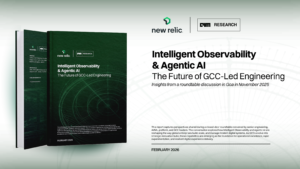In today’s competitive business environment, customer contact center hubs face significant challenges. Overhead costs are escalating, leading to financial strain on companies. Simultaneously, metrics like Net Promoter Score (NPS) and Customer Satisfaction (CSAT) are showing a downward trend, reflecting a decline in customer satisfaction and loyalty. These issues are not just operational but also have a profound impact on customer sentiment and brand perception. As businesses strive to meet growing customer expectations, there is an urgent need for innovative solutions to enhance customer interactions while managing costs effectively.
Customers Want More with Less Effort
Modern customers expect seamless, efficient, and personalized experiences. They demand quick resolutions to their queries with minimal effort on their part. AI-enabled customer hubs can play a pivotal role in meeting these expectations. By leveraging advanced technologies like natural language processing (NLP) and machine learning, AI can understand and predict customer needs, providing instant responses and solutions. This reduces the need for customers to navigate complex menus or wait for long periods, thereby enhancing their overall experience and satisfaction.
AI Chatbots: AI chatbots are one of the most effective tools in this regard. They offer real-time answers to common questions (FAQs) and can even solve more intricate issues. This instant support reduces wait times and increases customer satisfaction. For instance, AI chatbots can provide account balance information immediately, enhancing the customer experience by reducing the need for long hold times or complex navigation through automated phone menus.
Natural Language Processing (NLP): NLP enables AI to understand and engage in conversations with customers in a more human-like manner. This capability allows businesses to offer support that not only is efficient but also resonates more genuinely with customer needs. For example, an innovative tech company leveraging NLP in their customer service tools reported a notable boost in problem-solving accuracy and customer satisfaction.
Agent Productivity Should Increase with Less Effort
Handling a high volume of interactions can be overwhelming for customer service agents, leading to burnout and reduced productivity. AI-enabled tools can augment agent capabilities by automating routine tasks, providing real-time insights, and suggesting next-best actions. This allows agents to focus on more complex and value-added interactions, improving their efficiency and job satisfaction. With AI handling repetitive tasks, agents can deliver a higher quality of service with less effort, ultimately benefiting both the employees and the customers they serve.
Automating Routine Tasks: AI can automate repetitive tasks such as data entry, responding to common queries, and routing inquiries to the appropriate departments. This automation reduces the workload on human agents, allowing them to concentrate on tasks that require human judgment and empathy.
Real-Time Insights and Recommendations: AI can provide agents with real-time insights and recommendations during customer interactions. For example, AI-driven systems can analyze customer data and suggest personalized solutions, improving the efficiency and effectiveness of the support provided. This not only enhances agent productivity but also ensures that customers receive timely and relevant assistance.
Cost to Serve vs. Experience to Serve
Balancing the cost to serve customers with the quality of service provided is a critical challenge for businesses. AI-enabled customer hubs offer a solution by optimizing operational efficiency while enhancing the customer experience. AI can streamline processes, reduce operational costs, and provide personalized interactions at scale. For example, AI-driven chatbots can handle multiple inquiries simultaneously, reducing the need for extensive human resources. At the same time, AI can gather and analyze data to continuously improve service quality, ensuring that customers feel valued and heard. This balance between cost efficiency and exceptional service is essential for maintaining a competitive edge.
Cost Reduction: AI reduces overhead costs by handling a significant portion of customer inquiries through automated systems. This reduces the need for a large customer support team and allows businesses to operate more efficiently. For example, common inquiries about return policies, shipping details, and product availability can be addressed by AI, saving human agents for more complex issues.
Enhanced Customer Experience: AI can enhance the customer experience by providing personalized recommendations based on customer data and behavior. Predictive analytics can help anticipate customer needs and provide proactive support, further improving customer satisfaction and loyalty. For instance, AI can analyze past purchase behavior to recommend personalized products or services, increasing the chances of upselling and cross-selling.
Looking Ahead
It’s an exciting time in the realm of customer service. As the world changes rapidly, the ways we buy, interact, consume, and complain are evolving, driving new best-in-class standards. The future lies in integrating a self-healing services layer with an advanced experience layer, creating AI-enabled customer hubs that not only meet but exceed customer expectations. These hubs promise to revolutionize the way businesses operate, providing a seamless, efficient, and personalized customer experience while optimizing costs and boosting agent productivity. Embracing this reimagined future is not just an option but a necessity for businesses aiming to thrive in the ever-evolving marketplace.






